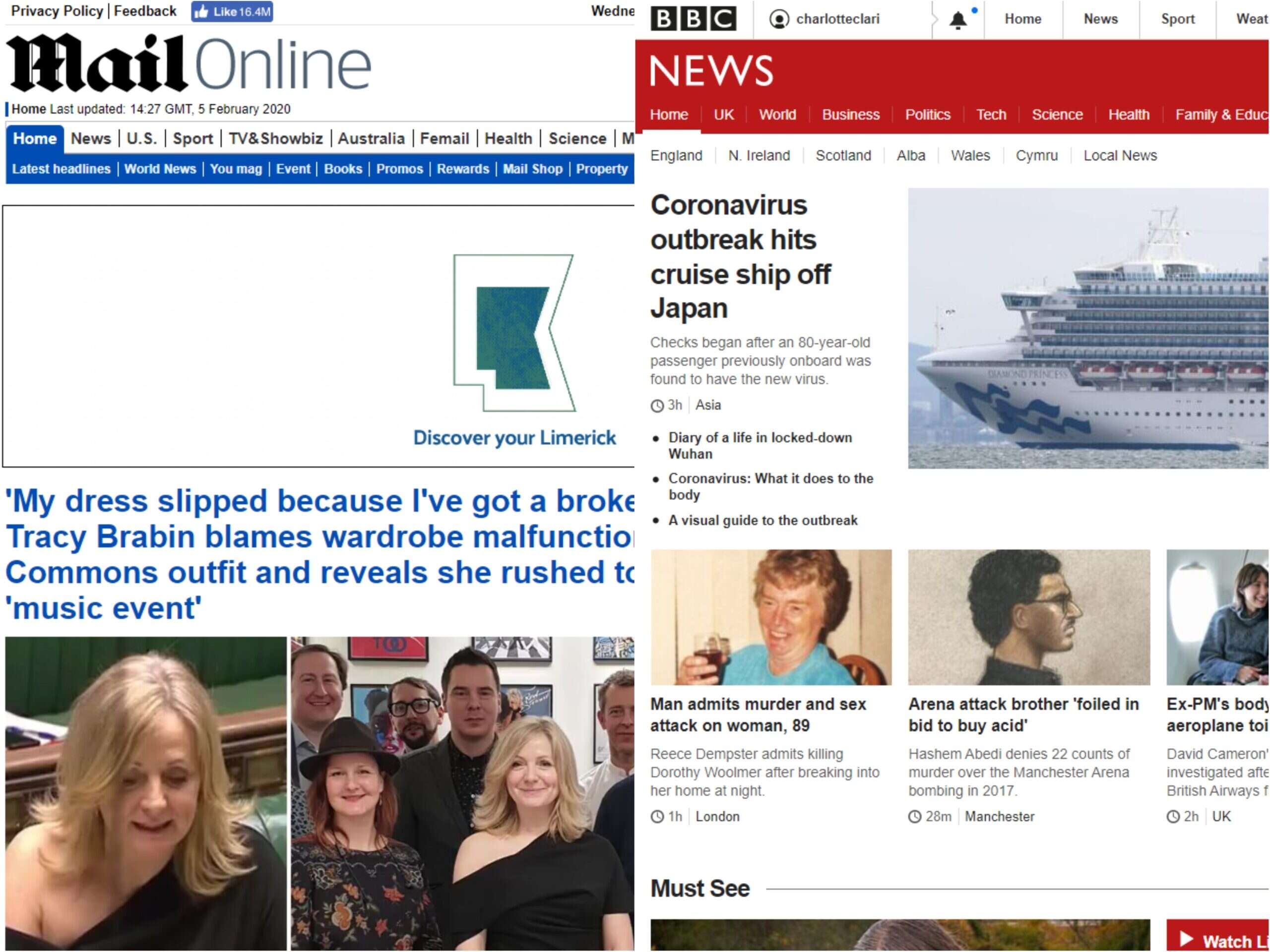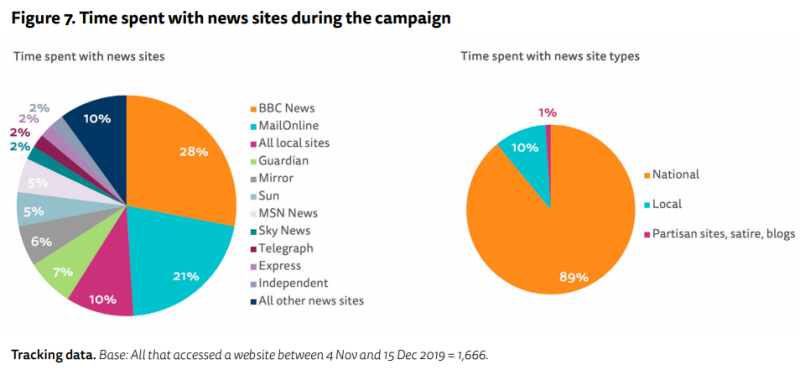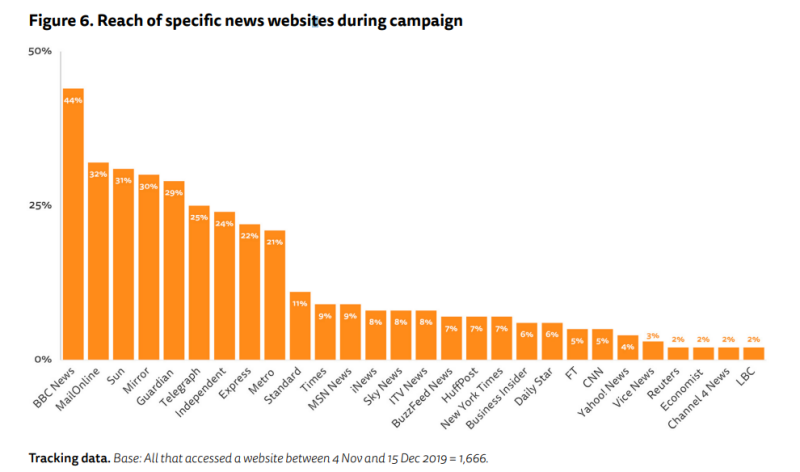
BBC News and Mail Online together accounted for almost half of all time spent on news websites by UK adults during the six-week general election campaign, according to a new report.
The BBC made up 28 per cent of the time spent on UK news websites leading up to the snap election, while Mail Online accounted for 21 per cent.
The report, published today by the Reuters Institute for the Study of Journalism, said this showed the importance of a “small handful” of UK news websites and the “winner-takes-most” nature of the market.
The report used analysis that tracked the online news consumption of 1,711 British people aged 18 to 65 (excluding Northern Ireland) across mobile and desktop devices throughout the campaign period last year.
Making up the rest of the top five for time spent on news websites during the election were the Guardian (seven per cent), the Mirror (six per cent), and the Sun (five per cent).
All local news websites combined made up ten per cent.

Time spent with news sites during the 2019 general election campaign. Picture: Reuters Institute for the Study of Journalism report on Online News and Media Use in the 2019 UK General Election
The report said: “Other sites that do well in terms of reach, however, such as the Express and the Independent, show very low levels of time spent, with around two per cent of the overall news pie.
“In many cases, this is because traffic to these sites tends to be irregular use from social media or search rather than regular and loyal audiences.”
Mail Online is part of the same news group as the Daily Mail, but has its own editor and is considered a separate title, although it does publish stories that have appeared in the right-leaning daily and the Mail on Sunday.
BBC News is bound by impartiality guidelines as a broadcaster regulated by Ofcom. Unlike newspapers, broadcasters are not free to be partisan.
The report concluded that the “right-wing media – with the exception of the Daily Mail – have lost influence and reach with the move to online and continue to do so with each passing election”.
The report found that online news use during the campaign had “wide reach but limited engagement”.
Almost three-quarters (72 per cent) of those tracked visited a news website to read a news story during the election campaign, but on average people spent just 16 minutes across 22 visits to news websites per week.
Among 18 to 34-year-olds this halved to just eight minutes per week.
BBC News was “by far” the most widely used online source for election news, the report said, being accessed by 44 per cent of the sample.
Its app, which is set to be “reinvented” this year, was also the most used news app with around one in ten app users loading it during the campaign period.

Reach of specific news sites during the 2019 general election campaign. Picture: Reuters Institute for the Study of Journalism report on Online News and Media Use in the 2019 UK General Election
The BBC repeatedly faced criticism throughout the election campaign, including over its failure to secure an interview with Johnson for Andrew Neil, despite the stalwart broadcaster having interviewed every other major party leader in the UK.
The BBC was also forced to admit its mistakes in using archive footage of Johnson laying a wreath on Remembrance Day at the Cenotaph, which elicited 2,000 complaints, and editing out laughter directed at Johnson in a clip of a Question Time leaders’ special used in a news bulletin.
Despite this, more of the report’s respondents felt the BBC had done a good job with its election coverage than a bad job (43 per cent versus 14 per cent).
The report, authored by researchers Nic Newman, Richard Fletcher and Anne Schulz, said: “Overall our tracking data remind us that people have busy lives, limited time for news, and that they tend to pay most attention at the start and end of a campaign.
“Our data also reveal the different patterns of younger people online, who are even more easily distracted by social media and other apps and ended up spending less time with news on average compared with older groups. A third visited none of our designated news websites at all.
“In terms of those who do access the news, the bulk of this appeared to be reportage rather than opinion, and was accessed from mainstream news sites, much of it from those like the BBC with obligations to be impartial.
“We find little evidence that foreign websites or openly accessible partisan Facebook pages captured much attention online in this election.”
Email pged@pressgazette.co.uk to point out mistakes, provide story tips or send in a letter for publication on our "Letters Page" blog
